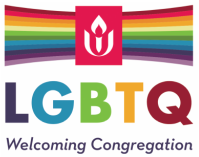Resources on Whiteness
Books:
- Towards the Other America: Anti-Racist Resources for White People Taking Action for Black Lives Matter by Chris Crass (Unitarian Universalist author)
- Uprooting Racism by Paul Kivel
- White Fragility by Robin DiAngelo
- White Like Me by Tim Wise
- Tears We Cannot Stop by Michael Eric Dyson
- Not My Idea: A Book About Whiteness by Anastasia Higginbotham (story for all ages from today)
- For more: https://www.charisbooksandmore.com/understanding-and-dismantling-racism-booklist-white-readers
Web sites
- UUA: Examining Whiteness: An Anti-Racism Curriculum
- White Racial Literacy Project - IU/Purdue
- White Nonsense Roundup
- Discussing Whiteness - Humboldt State University
- White Supremacy Culture by Tema Okun
http://www.dismantlingracism.org/white-supremacy-culture.html
Books:
- Towards the Other America: Anti-Racist Resources for White People Taking Action for Black Lives Matter by Chris Crass (Unitarian Universalist author)
- Uprooting Racism by Paul Kivel
- White Fragility by Robin DiAngelo
- White Like Me by Tim Wise
- Tears We Cannot Stop by Michael Eric Dyson
- Not My Idea: A Book About Whiteness by Anastasia Higginbotham (story for all ages from today)
- For more: https://www.charisbooksandmore.com/understanding-and-dismantling-racism-booklist-white-readers
Web sites
- UUA: Examining Whiteness: An Anti-Racism Curriculum
- White Racial Literacy Project - IU/Purdue
- White Nonsense Roundup
- Discussing Whiteness - Humboldt State University
- White Supremacy Culture by Tema Okun
http://www.dismantlingracism.org/white-supremacy-culture.html

